Best viewed with
Internet Explorer.
2. Leisure and Tourism in the
Japanese society
|
“The family holiday is not unknown, ..
but in general such trips tend to be much shorter than .. in
Europe. Two nights away is perhaps typical, and the father of
the family will be itchy to get back to work.” (Hendry 1987,
165) |
Long absence from work by making full use of
granted paid holiday is still frowned upon. Unlike western positive
images of otium (German: Muße) as 'recharging the battery' and ‘getting new
ideas’, i.e. self-actualisation through leisure, leisure activities
and the necessary absence connected to it are seen as ‘letting down
the collegues’, only partly redeemed by buying omiyage
(typical souvenirs) for the left-behind.
“A feeling of guilt in seeking mere pleasure dies
hard within a culture of hard work. .. And this axiom is fortified
by people’s concern for, and attention to, others in close
proximity, such as family, relatives, neighbours, and fellow
workers.” (Kajiwara 1997, 169)
Paid
holidays are granted to employees (app. 20 days/year). It is however
socially impossible to use the full
amout.
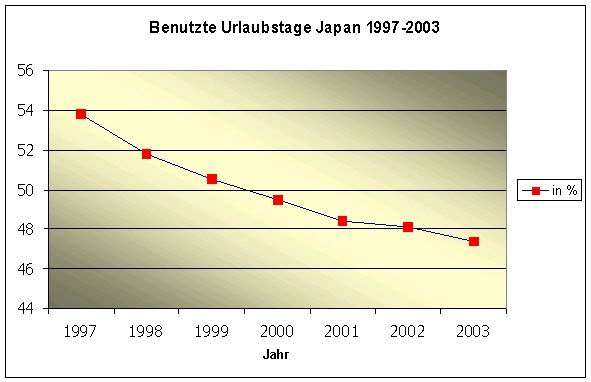
© Arlt 2005 after (TIJ
2004), has been continuing to fall since 2003
Japan Times 2015:
In Japan, plenty of workers fail to take their paid vacation
allowance. The Abe administration is now considering making it
compulsory for workers to take at least five days of paid holiday a
year, in a bid to lessen the toll on mental and physical health.
Workers typically use less than half their annual leave, according to
a survey by the labor ministry that found employees in 2013 took only
nine of their 18.5 days average entitlement.
A separate poll showed that one in six workers took no paid holidays at all that year.
The administration wants to boost the amount of paid leave used to 70
percent by 2020 and is planning to submit legislation in the current
Diet session mandating holidays.
In early discussions, employers’ groups have proposed limiting the
number of compulsory paid holidays to three days, while unions have
called for eight.
The culture of long working hours and unpaid overtime is regularly
criticized as a leading cause of mental and physical illness among
employees.
Japanese travel less
and much shorter than the inhabitants of other OECD countries,
travel motive is often an event: 3,9 nights p.P. p.y., compared to
17,1 (Germany) and 16 (France, GB). Japanese overnight stays per
year decreased year-by-year since 1991 (OECD 2002).
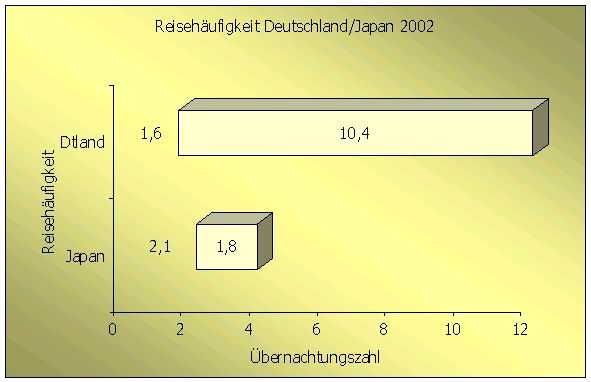
© Arlt 2005 after (TIJ
2004)
Only app. 13% of the Japanese travel across a border per year.
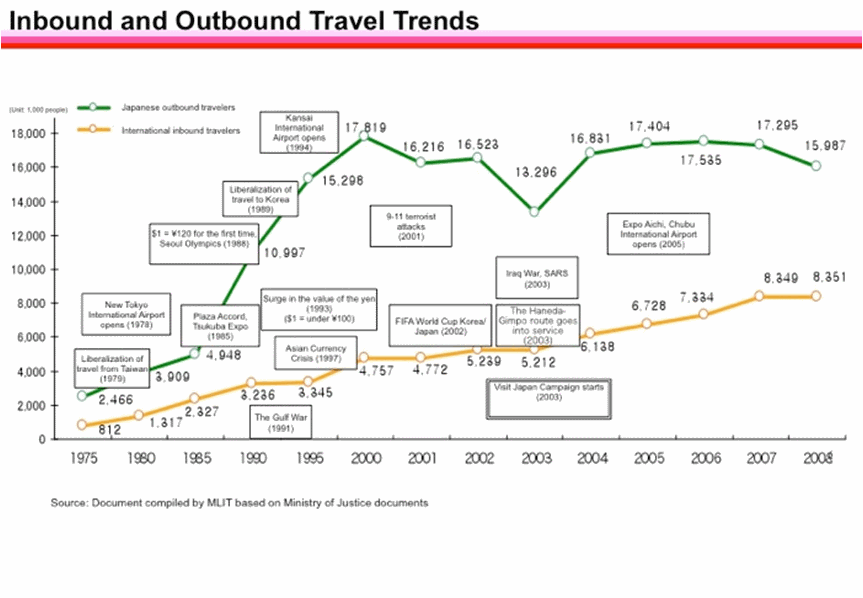
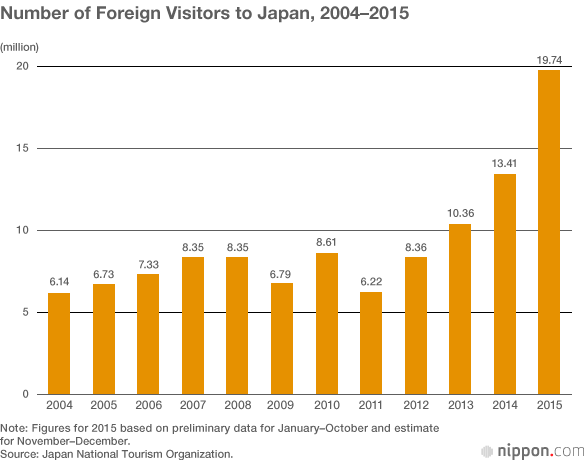
l
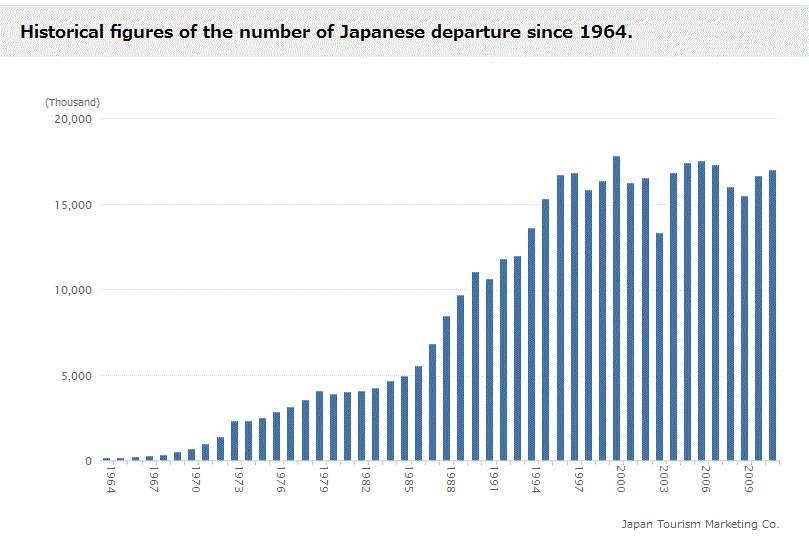
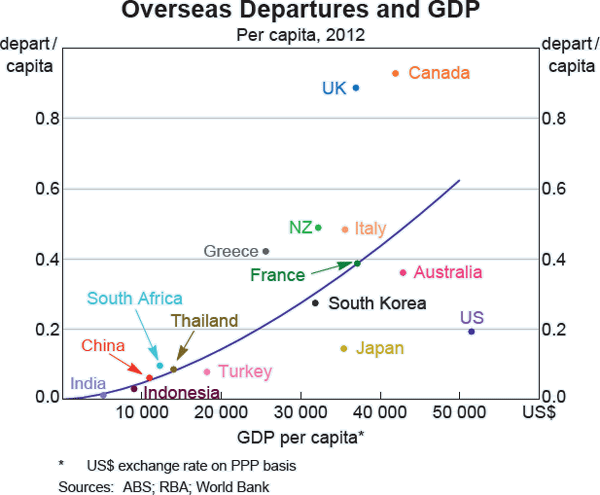
Especially young Japanese traveled less and less to other countries in the last decade.


|